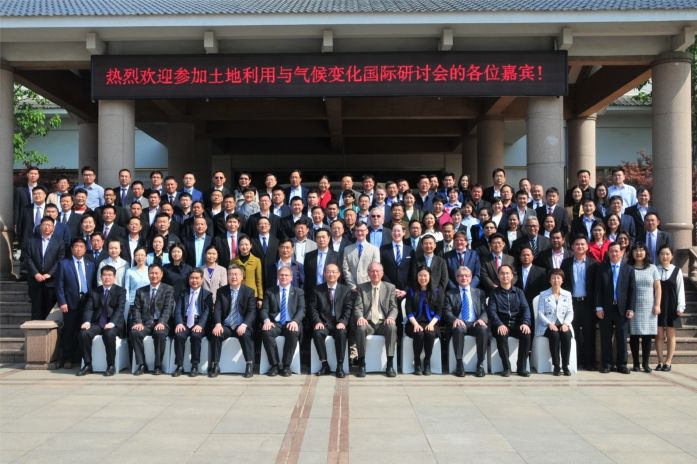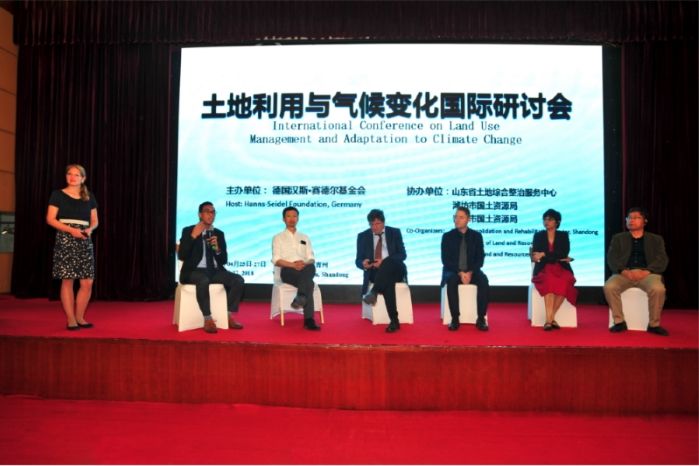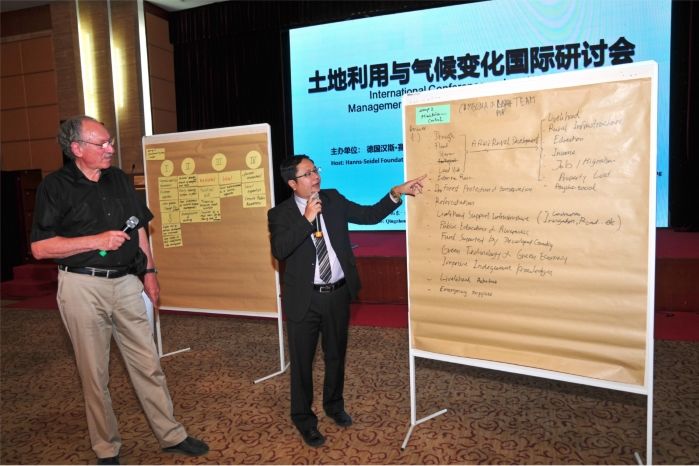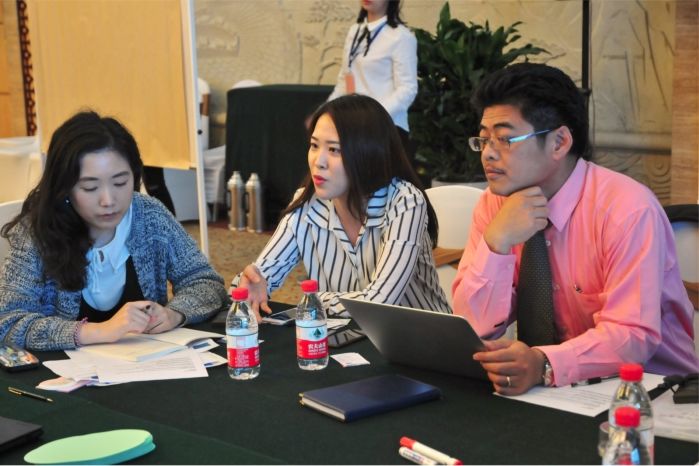International Conference in Qingzhou
Professional Exchange on Land Use Management and Climate Change
HSS
High-ranking politicians, administrators and representatives of the Central Party School of the Chinese Communist Party were among the guests. Dr. Michael Klaus, Chief Representative of the HSF Office Shandong, Song Shoujun, Vice Director of Shandong Province Land Resources Bureau, and Geng Huaijin, Vice Mayor of Qingzhou City, held the opening speech. Song emphasized the good cooperation between the province of Shandong and the Hanns Seidel Foundation. Especially in the context of the 19th party congress, the development of rural areas has once again clearly come into focus and is of central importance for the development of China, Asia and the world.
HSS
Professional Exchange and Networking
Experts from ten countries - Australia, China, Germany, Cambodia, Laos, Myanmar, Philippines, Thailand, Vietnam and South Korea - spent three days sharing their knowledge and experience in presentations, workshops and networking talks. Prof. Dr. Wu Cifang, Dean of the Zhejiang University Land Development National Academy, and Prof. Dr. Ing. Holger Magel, emeritus of the Technical University of Munich, gave the prelude with their presentations. With best practice examples for strengthening rural areas, both emphasized the central importance of the topic for balanced development. To this end, Magel explained the model of Spatial Justice he developed, which is the basis of the deliberations of the Commission of Inquiry of the Bavarian State Parliament for the discussion of equal living and working conditions.
HSS
Lothar Winkler, Head of the Office for Rural Development in Upper Franconia, Prof. Dr. Guo Zhaohui, Deputy Chief Economic Officer of the Central Party School of the Chinese Communist Party as well as Zhao Yuntai from the China Land Surveying and Planning Institute, finally gave important impulses based on practical examples from Germany and China. Dr. Guo emphasized the importance of a good exchange and presented the experiences gained during his delegation trips in Germany together with the HSS. Christian Graefen, Association for International Cooperation, Wilson John Barbon, International Institute for Rural Reconstruction Myanmar, and Wan Yang, Landesa Institute, gave insights into the practical work and role of development organizations in rural development in Africa, Myanmar, and China. Barbon presented the work of the IIRR, which goes back to a founder from China. Together with the rural population, the organization develops concepts for sustainable agriculture and trains farmers as multipliers in the long term. Guo Yiqiang, China Land Consolidation and Rehabilitation Center, Dr. Rohan Bennett, Associate Professor of Swinburne University of Technology in Australia, Dr. Fahria Masum, consultant in the field of land management, and Chen Weifeng, Shandong Agricultural University, then presented different approaches and strategies for a climate-adapted rural development.
HSS
Results and Prospects
Both the invited speakers and the participants agreed at the end of three highly interesting days: Climate change poses enormous challenges to rural development globally, which can only be approached in good cooperation. Care should be taken to balance rural and urban habitats, and people themselves should be seen as experts of their individual habitats. To implement these measures, good governance is crucial. Decisive for the future of rural areas - no matter in which country - are well-functioning state and civil society institutions and actors.
To adequately address global challenges such as climate change, migration, flight and food insecurity, an international exchange of expertise and experience forms the central foundation. The Representative Office of Shandong would like to comply with this wish of the participants. Eventually, Dr. Michael Klaus thanked all participants for their valuable contributions and promised to repeat the international conference next year.
Author: Melanie Kade, HSF China




